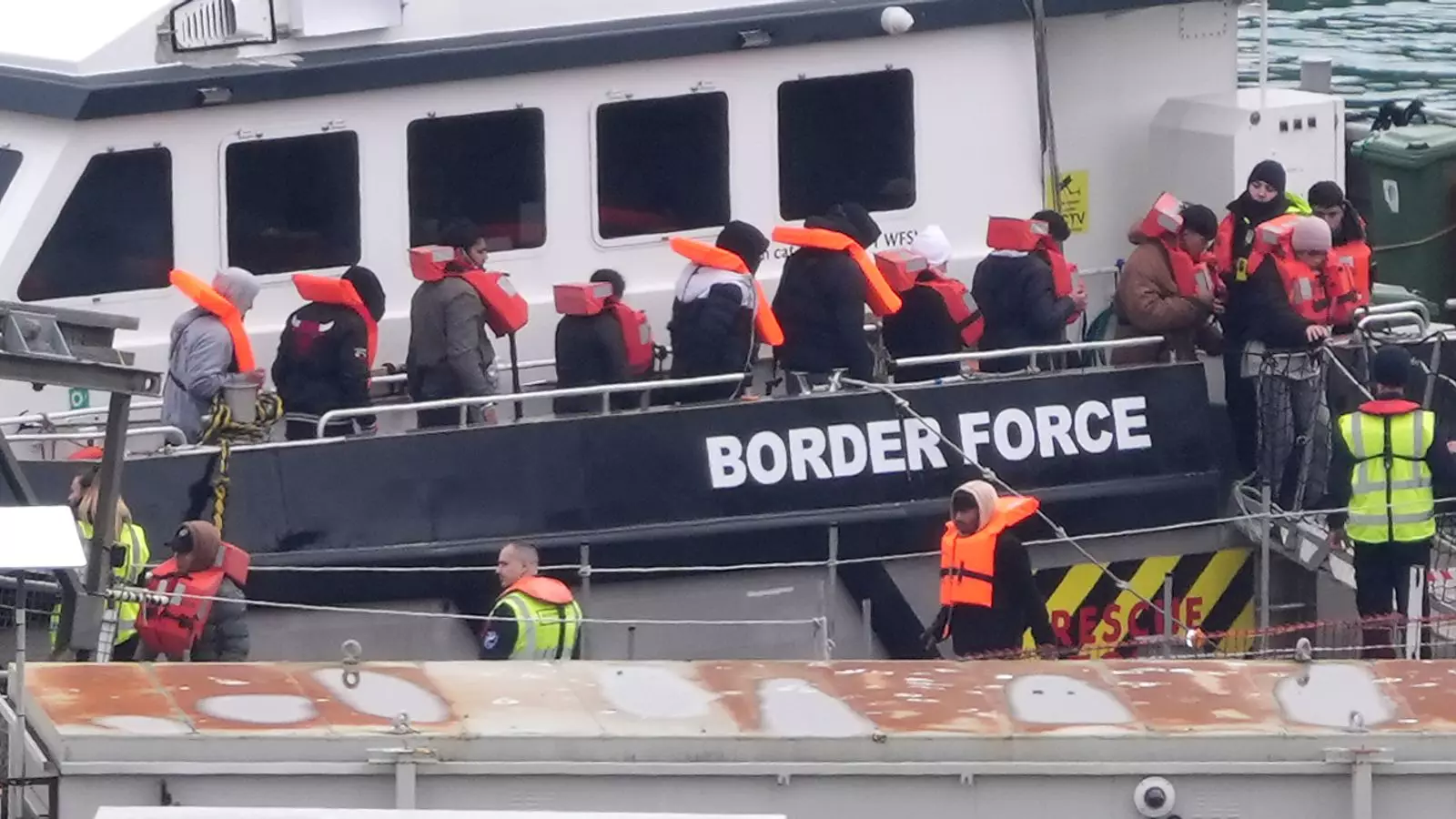The rapid rise in the number of people arriving in the UK on small boats has reached a new milestone, surpassing 5,000 by the end of March this year. This surge in arrivals has led to concerns about the country’s ability to manage the situation effectively. According to government data, more than 100 small boats have crossed the English Channel in the first three months of 2024, making it the busiest first quarter for crossings on record. The recent arrival of seven boats, carrying 349 individuals, on a single day highlights the scale of the issue.
The increasing number of small boat arrivals poses a significant challenge for government officials, particularly as the Home Secretary, Rishi Sunak, has made pledges to curb such crossings. The rise in arrivals not only raises questions about the effectiveness of existing policies but also creates political hurdles for officials ahead of the upcoming general election. Despite efforts to deter asylum seekers from using religious conversion as a means to avoid deportation, recent cases like that of Abdul Ezedi have brought the issue to the forefront.
Controversies Surrounding Asylum Seekers
The case of Abdul Ezedi, a convicted sex offender who was granted asylum after claiming to have converted to Christianity, has sparked controversy and led to increased scrutiny of the asylum system. The Home Secretary’s warning to the Church of England over the perceived misuse of religious conversion by asylum seekers has further stirred debate. While the government emphasizes the need to distinguish genuine cases from fraudulent ones, critics argue that vulnerable individuals may be unfairly targeted in the process.
Church and Political Involvement
The involvement of the Church of England in asylum issues has added another layer of complexity to the debate. Senior church leaders have expressed their commitment to assisting asylum seekers while also clarifying that religious conversion does not guarantee asylum status. The Archbishop of Canterbury, Justin Welby, has underscored the church’s role in addressing societal challenges, including those related to immigration. However, the church’s stance on government policies, such as the Rwanda plan, has led to tensions with political authorities.
The political response to the escalating number of small boat arrivals has been mixed, with opposition parties criticizing the government’s handling of the situation. Labour representatives have warned of a potential humanitarian crisis if swift action is not taken to address the underlying causes of irregular migration. The debate over asylum policies, religious conversion, and border control measures is likely to continue as the UK grapples with the complexities of managing immigration flows.
The rising number of small boat arrivals in the UK presents a multifaceted challenge that requires a comprehensive and nuanced approach. Addressing the root causes of irregular migration, ensuring fair treatment of asylum seekers, and balancing national security concerns with humanitarian considerations are all essential aspects of navigating this complex issue. As policymakers, civil society organizations, and the public engage in dialogue and debate, finding common ground and sustainable solutions will be crucial in shaping the future of immigration policy in the UK.



Leave a Reply